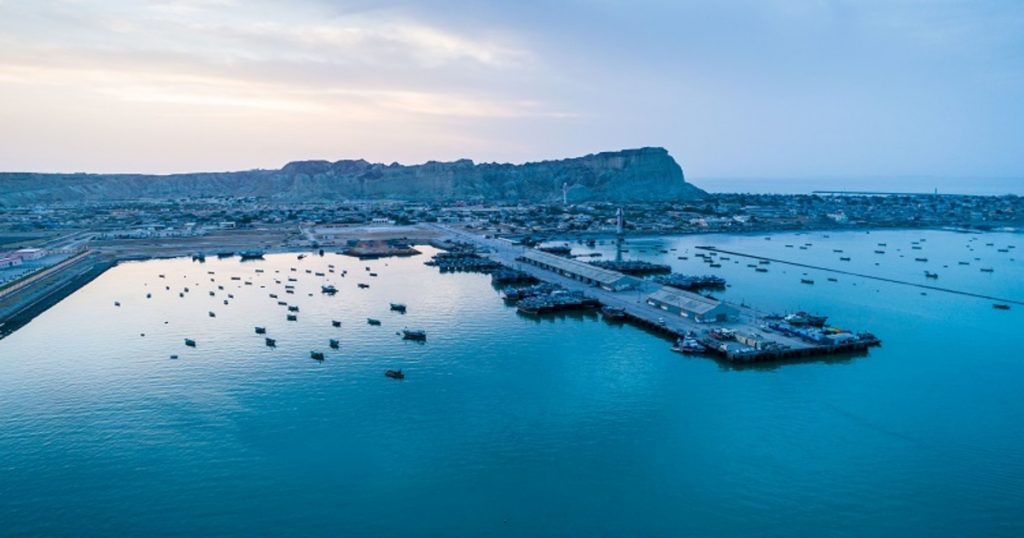The government is persuading Europe and China to route their gas supplies from Central Asian nations through Gwadar to ensure their energy security in a changed global environment in the wake of the Russia-Ukraine war.
Minister of State for Petroleum Musadik Malik told journalists on Wednesday that Central Asian states — Kazakhstan, Kyrgyzstan, Tajikistan, Turkmenistan and Uzbekistan — were the global energy capitals. However, because these countries are landlocked, their resources remained trapped and could not be exported to the world, he said.
The minister said the government had been engaged with Central Asia, European nations, Turkiye, China and even the United States to promote Pakistan as a natural trading hub for natural gas and liquefied natural gas (LNG), more to the economic advantage of those countries as well as benefits flowing to Pakistan as a smaller partner. “We have talked about this with our allies and friendly countries,” he added.
He said Islamabad had also recently discussed these options with the leadership of Azerbaijan and Turkmenistan — the latter has been pursuing a multibillion-dollar gas pipeline with limited physical progress amid challenges to international financing avenues and the Afghan situation. He said Pakistan had also discussed this with European Commission’s task force on energy.
Turkmenistan couldn’t sell its gas to the world because it did not have any port, but its gas could reach Pakistan through a pipeline, Mr Malik said.
He said Europeans could set up their own LNG processing terminals in Pakistan, including at Gwadar port, from where they could transport gas to their home destinations. This, he said, could be an alternative option for them. Besides, China could also establish LNG terminals for its requirements, he added.
He said Azerbaijan’s gas and other resources in the Caspian Sea could be delivered through Georgia to Turkiye, where a pipeline network is already available to transport gas anywhere in the world.
“So, this can become a natural arch of friendly countries, including Azerbaijan, Pakistan and Turkiye and there could be a parallel movement of natural gas through pipelines on the one hand and LNG through ships on the other,” he said.
This arrangement could unravel a new revolution of energy security for Europe and others and Pakistan could also become an energy transportation hub, Mr Malik said, adding: “We can become a small shareholder in pipelines and terminals with land, port and pipeline routes.”
“We want to be the trading partner of Central Asia, as it is the capital of energy. We have given a proposal to bring gas through a pipeline to Pakistan. There are huge gas reserves in Turkmenistan, almost equivalent to that of Qatar,” he said. “We offer to the world to come and establish their LNG plant at Gwadar, especially China and Europe, to invest in this sector and export to other countries.”
Financing was a key challenge to the Turkmenistan-Afghanistan-Pakistan-India (TAPI) pipeline, he said, adding that once European countries found an opportunity for their energy security through Pakistan, international multilateral agencies could also come forward with a debt portion of the $10bn pipeline.
The minister said that apart from the existing arrangements, Pakistan would have to enter into more short- and long-term LNG deals over the next two to three years as prices subside with an expected glut-like situation in the global LNG market once the Ukraine war is settled.
He said Qatar’s production would be expanding by almost one-third of its existing production. Besides, North America’s Henry Hub deliveries had reached Europe and its flow appeared to be opening to Asia soon, as some neighbouring players had started investments in transportation trains and LNG facilities, he added. Supplies from Australia were also coming up, he said.
Meanwhile, the United Arab Emirates is also building new liquefaction trains, ones consisting of several components to process, purify and convert natural gas to LNG. The energy group Abu Dhabi National Oil Company has announced plans to double its LNG production capacity to meet the increase in global gas demand.
All these could provide favourable terms and prices to Pakistan to secure in two to three years, Mr Malik said.
Courtesy Dawn News





